Health
UNICEF Raises Concern Over Low Immunization Rates as Gombe Flags Off 2025 Polio Campaign
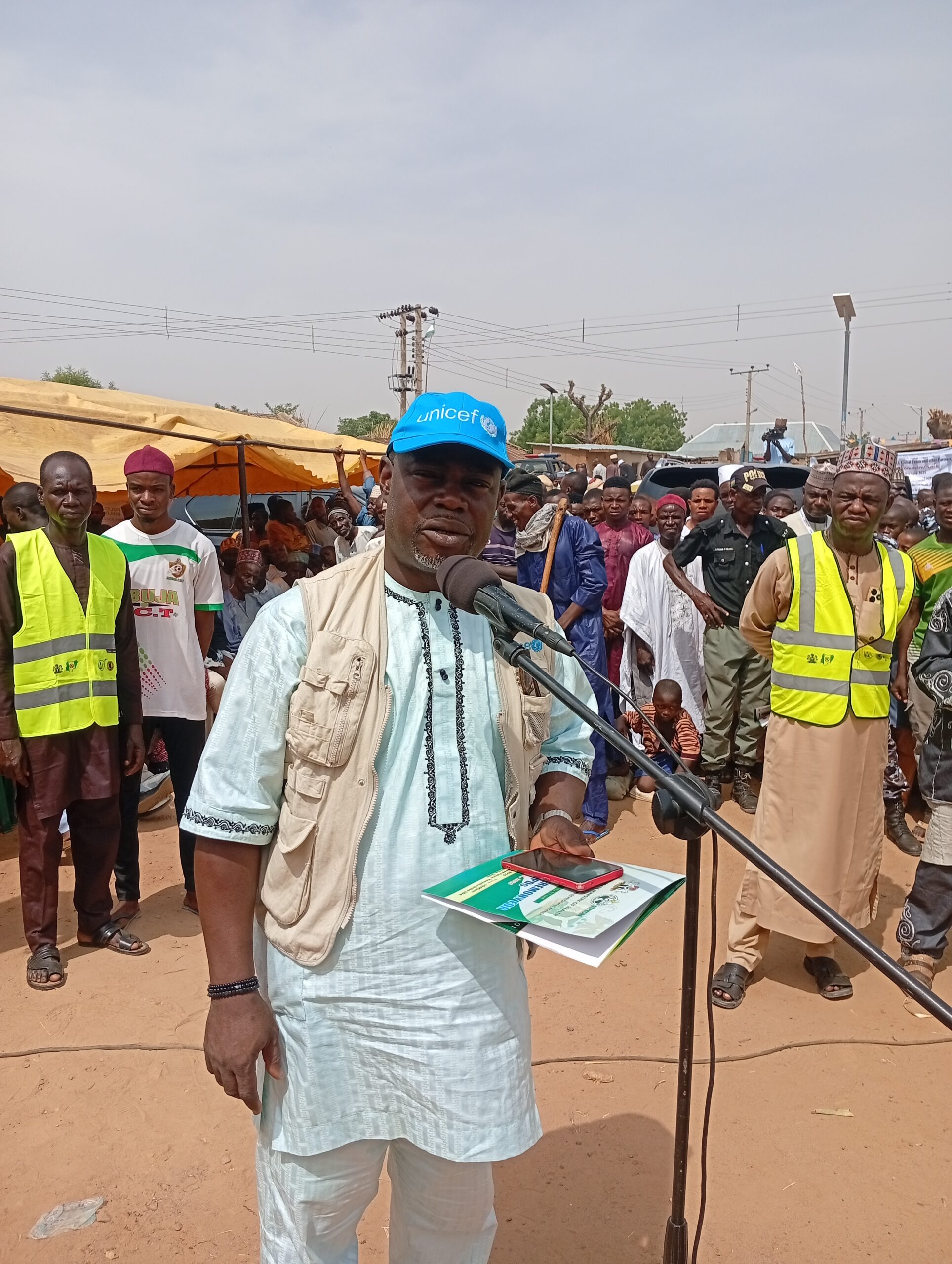
By Muhammad Jamil Abubakar
UNICEF has raised alarm over the high number of unreached and unvaccinated children in Gombe State as the government, in collaboration with development partners, officially launched the 2025 round of the National Immunization Plus Days (NIPDs) campaign.
Speaking at the flag-off ceremony held at the Kuri District Head Palace in Yamaltu Deba Local Government Area, Chief of UNICEF’s Bauchi Field Office, Dr. Nuzhat Rafique, represented by UNICEF Health Officer Oluseyi Olusunde, identified Dukku, Kwami, Funakaye, and Yamaltu-Deba as high-risk areas with critically low immunization coverage. She emphasized that despite Nigeria’s certification as free of wild poliovirus in 2020, outbreaks of vaccine-derived poliovirus persist, posing a renewed threat to public health.
Dr. Rafique called for intensified community engagement to eliminate vaccine noncompliance and urged traditional leaders to play a greater role in countering misinformation and boosting vaccine acceptance. “We want to end this campaign with no rejection,” she said, stressing that 2025 is a crucial year for Nigeria to fully eradicate polio.
Flagging off the campaign on behalf of Governor Muhammadu Inuwa Yahaya, Gombe State Deputy Governor and Chairman of the State Task Force on Immunisation, Dr. Manassah Daniel Jatau, reaffirmed the government’s commitment to protecting children from preventable diseases. He highlighted the urgency of addressing the spread of circulating variant poliovirus type 2 (cVPV2), with five recent detections in the state.
“Every child missed is a potential case,” Dr. Jatau warned, calling for community-wide participation to bridge immunization gaps. He also appealed to religious and traditional leaders to support efforts in dismantling vaccine hesitancy, especially among hard-to-reach populations.
The decision to launch the campaign in Kuri was informed by data indicating low vaccination rates, particularly among zero-dose children—those who have never received any vaccine. Health officials described the situation as a significant public health risk.
Traditional leaders, including the Emir of Yamaltu, Abubakar Aliyu, and the Emir of Deba, Alhaji Ahmad Usman Mohammed, pledged their full support to the campaign, commending the state government, healthcare workers, and development partners for their efforts.
Also speaking, World Health Organization (WHO) Country Representative, Dr. Walter Kazadi Mulombo, warned against the risk of preventable disease resurgence if immunization efforts are not sustained. He reaffirmed WHO’s commitment to supporting Nigeria’s eradication drive, expressing optimism that polio would be fully eliminated by the end of 2025.
Gombe State Commissioner for Health, Dr. Habu Dahiru, reassured parents about the safety and effectiveness of the oral polio vaccine, urging families to ensure their children are immunized. “Immunizing your child protects them from multiple life-threatening diseases,” he emphasized.
The NIPDs campaign is expected to cover all 11 Local Government Areas in Gombe State, targeting hundreds of thousands of children under five with life-saving polio vaccines and additional healthcare services.
Health
Gombe Hosts National Nursing Workshop, Urges Review of Curriculum and Embrace of AI in Healthcare
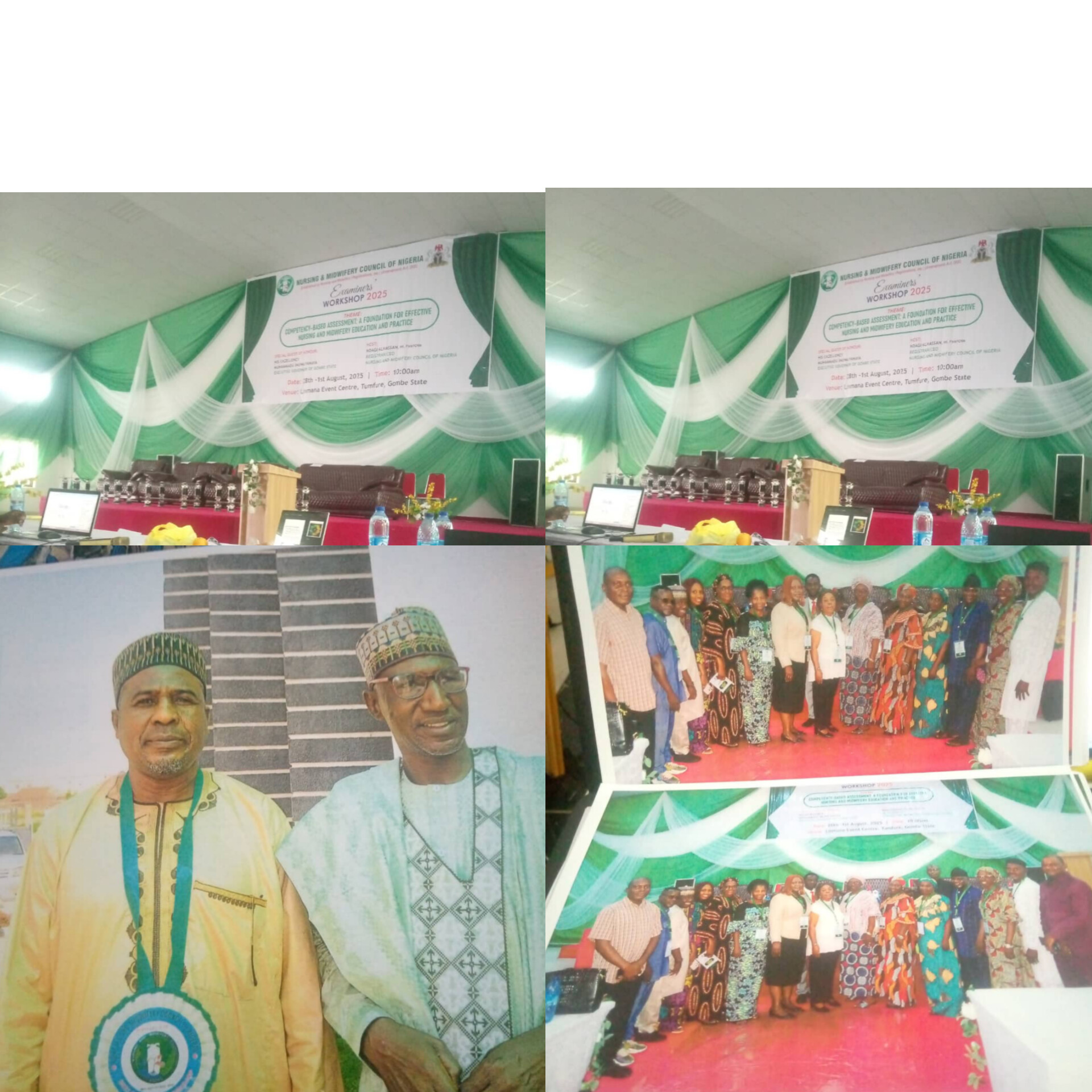
By Editor Daily Facts
Nurses and midwives across Nigeria have been charged to uphold professionalism, compassion, and adaptability in delivering quality healthcare services, as Gombe State hosted the 2025 National Examiners Workshop organized by the Nursing and Midwifery Council of Nigeria.
Declaring the workshop open on Tuesday in Gombe, Governor Muhammadu Inuwa Yahaya, represented by the Commissioner for Health, Dr. Habu Dahiru, commended the Council for selecting Gombe State to host the crucial event. He emphasized the commitment of his administration to improving the health sector through policy reforms, infrastructure development, and capacity building.
“We have prioritized the health sector by upgrading Primary Healthcare Centres (PHCs) across all 114 wards in the state. This is to provide an enabling environment for healthcare professionals, including nurses and midwives, to deliver effective services,” Dr. Dahiru said.
He revealed that the state government has made significant improvements to the welfare of nurses and midwives, and urged them to show empathy in dealing with patients.
Dr. Dahiru also used the platform to call for a comprehensive review of the national nursing and midwifery training curriculum. He noted that the advent of Artificial Intelligence (AI) and other technological innovations in the global healthcare landscape demands that Nigerian practitioners adapt to modern trends.
“This is the time to update the training manual to reflect emerging realities. The future of healthcare lies in innovation, and nurses—especially those in rural communities—must be equipped with the skills and knowledge to meet these evolving challenges,” he added.
The guest speaker, Professor Saleh Garba, lauded the organizers of the workshop and urged participants to make practical use of the knowledge and skills acquired during the training. He described the workshop as a vital platform for updating participants on global best practices in nursing and midwifery education.
Also speaking at the event, the Emir of Akko, Alhaji Umar Muhammad Atiku, described nurses and midwives as pivotal members of society who contribute meaningfully to community well-being. He appealed to all levels of government to prioritize investment in their welfare for improved service delivery.
The theme of the 2025 workshop, “Competency-Based Assessment: A Foundation for Effective Nursing and Midwifery Education and Practice,” underscores the need for a modernized, skills-based approach to training that aligns with international standards.
The workshop brought together examiners, educators, health professionals, and stakeholders who deliberated on critical aspects of nursing education, including curriculum review, assessment methods, and integration of emerging technologies.
As the healthcare sector continues to evolve, stakeholders at the workshop agreed that the challenge ahead lies in how quickly nurses and midwives can adapt to change—not only to enhance service delivery but also to strengthen the nation’s overall health system.
ENDS
Health
Gombe Hosts National Nursing Workshop, Urges Review of Curriculum and Embrace of AI in Healthcare
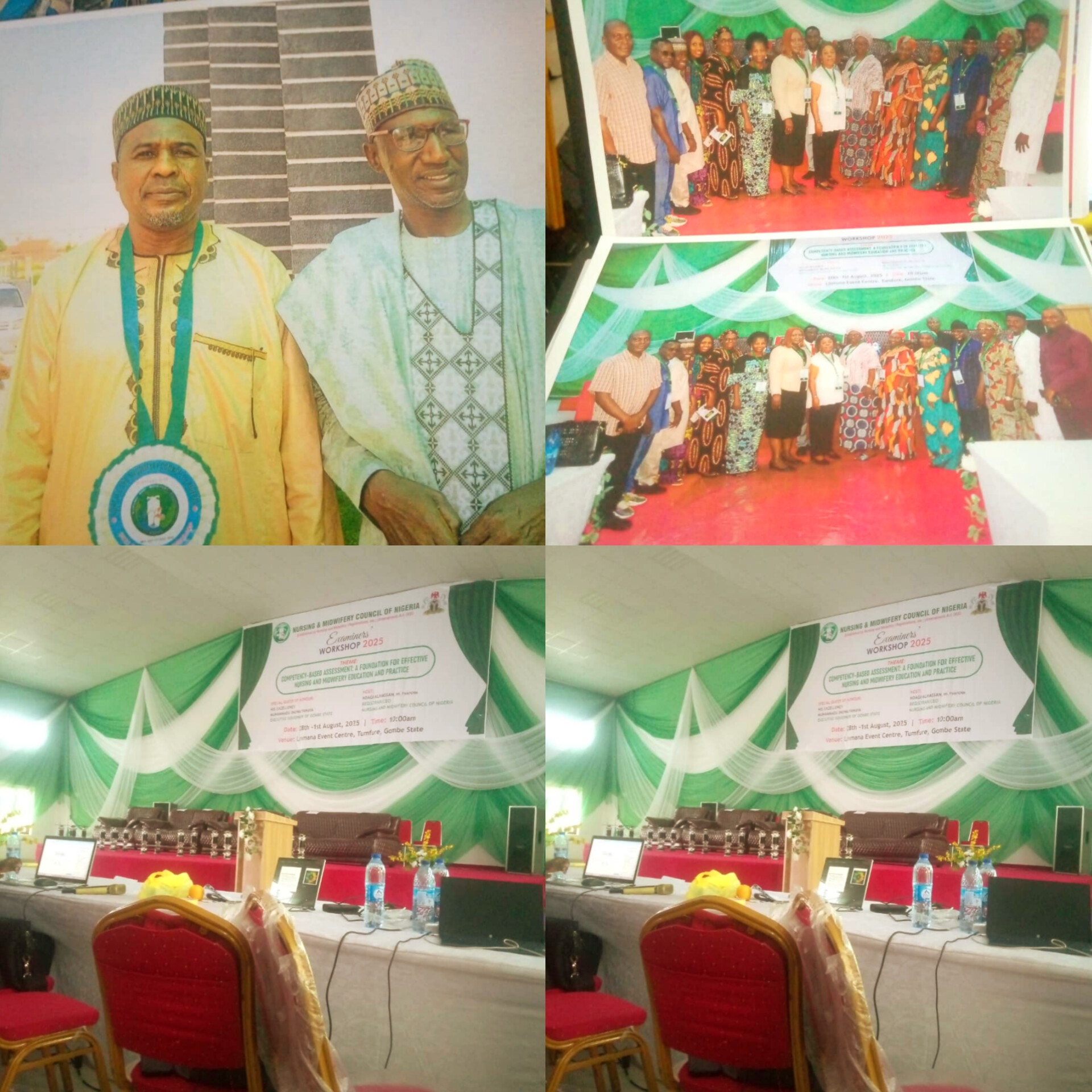
By Editor Daily Facts
Nurses and midwives across Nigeria have been charged to uphold professionalism, compassion, and adaptability in delivering quality healthcare services, as Gombe State hosted the 2025 National Examiners Workshop organized by the Nursing and Midwifery Council of Nigeria.
Declaring the workshop open on Tuesday in Gombe, Governor Muhammadu Inuwa Yahaya, represented by the Commissioner for Health, Dr. Habu Dahiru, commended the Council for selecting Gombe State to host the crucial event. He emphasized the commitment of his administration to improving the health sector through policy reforms, infrastructure development, and capacity building.
“We have prioritized the health sector by upgrading Primary Healthcare Centres (PHCs) across all 114 wards in the state. This is to provide an enabling environment for healthcare professionals, including nurses and midwives, to deliver effective services,” Dr. Dahiru said.
He revealed that the state government has made significant improvements to the welfare of nurses and midwives, and urged them to show empathy in dealing with patients.
Dr. Dahiru also used the platform to call for a comprehensive review of the national nursing and midwifery training curriculum. He noted that the advent of Artificial Intelligence (AI) and other technological innovations in the global healthcare landscape demands that Nigerian practitioners adapt to modern trends.
“This is the time to update the training manual to reflect emerging realities. The future of healthcare lies in innovation, and nurses—especially those in rural communities—must be equipped with the skills and knowledge to meet these evolving challenges,” he added.
The guest speaker, Professor Saleh Garba, lauded the organizers of the workshop and urged participants to make practical use of the knowledge and skills acquired during the training. He described the workshop as a vital platform for updating participants on global best practices in nursing and midwifery education.
Also speaking at the event, the Emir of Akko, Alhaji Umar Muhammad Atiku, described nurses and midwives as pivotal members of society who contribute meaningfully to community well-being. He appealed to all levels of government to prioritize investment in their welfare for improved service delivery.
The theme of the 2025 workshop, “Competency-Based Assessment: A Foundation for Effective Nursing and Midwifery Education and Practice,” underscores the need for a modernized, skills-based approach to training that aligns with international standards.
The workshop brought together examiners, educators, health professionals, and stakeholders who deliberated on critical aspects of nursing education, including curriculum review, assessment methods, and integration of emerging technologies.
As the healthcare sector continues to evolve, stakeholders at the workshop agreed that the challenge ahead lies in how quickly nurses and midwives can adapt to change—not only to enhance service delivery but also to strengthen the nation’s overall health system.
ENDS
Health
Gombe State Strengthens Health Sector with Four-Day Capacity Building for Health Managers

By Muhammad Jamil Abubakar
The Gombe State Government has commenced a four-day capacity development workshop for health managers and leaders, aimed at improving the state’s Annual Operational Plans (AOP) and enhancing healthcare delivery systems. The initiative is supported by the Nigeria Health Sector Renewal Investment Initiative (NHSRII) in collaboration with key development partners.
Speaking at the opening of the workshop, Gombe State Commissioner for Health, Dr. Habu Dahiru represented by the Permanent Secretary of the Ministry, Dr. Ibrahim Yakubustated that the training will empower health personnel to effectively plan and execute health interventions across the state. He emphasized the ministry’s commitment to ensuring no stakeholder is left behind in driving progress in the health sector.
“The AOP reflects all activities scheduled for the year and will guide service delivery in both rural and urban communities,” Dr. Yakubu said, noting that the initiative aligns with Governor Muhammadu Inuwa Yahaya’s strong support for health sector reforms in the state.
Also addressing participants, the Director of Planning, Research and Statistics at the Ministry of Health, Dr. Suraj Abdulkarim, said the workshop is historic, as it marks the first time the Sector Wide Approach (SWAp) a strategic planning and coordination model has been fully adopted in Nigeria at the sub-national level.
He explained that last year’s operational plan identified key priorities, especially those targeting women, children, and newborns, in line with national and global health targets. Nigeria currently contributes nearly 25% of global maternal mortality, a burden the Gombe government aims to reduce through focused interventions.
Dr. Abdulkarim also highlighted the MAMMI program initiated by the state government, which focuses on six key areas including maternal health. A unit has been established to monitor and improve healthcare delivery at the primary, secondary, and tertiary levels.
The program also addresses human resources for health. Measures are being put in place to assess available skilled personnel, deploy them strategically across the state, and provide incentives such as rural accommodation and motivation packages to retain staff in underserved areas.
Improved data collection and evidence-based decision-making are also priorities under the program.
Dr. Tolu Adeniji, a Consultant Public Health Physician with NHSRII, described the training as a cascade model that builds leadership, systems thinking, and problem-solving capacity at all levels of government. According to him, the initiative stems from a national agreement between the Nigeria Governors Forum, the Ministry of Health, and the Presidency to harmonize health efforts and improve key performance indicators across states.
Dr. Adeniji said the workshop will enhance planning capacity within Ministries, Departments, and Agencies (MDAs), with lessons from the training to be scaled down to local government health teams ensuring inclusive and sustainable improvements in healthcare delivery in Gombe State.
-

 Leadership1 year ago
Leadership1 year agoBreaking: African Union Appoints Pantami as Co-Chair of the 4th Industrial Revolution Policy Council
-
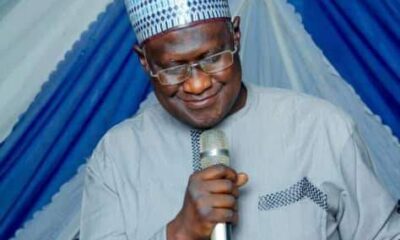
 Appointment11 months ago
Appointment11 months agoGombe State Indigene, Appointed New Vice Chancellor (ATBU)
-

 Politics2 years ago
Politics2 years agoFormer Gombe State APC Promoters Forum Chairman Attacked Following Political Commentary
-
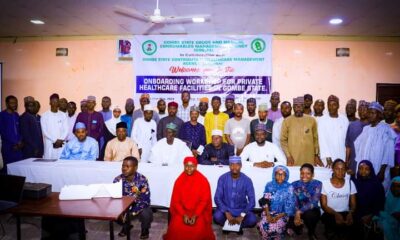
 Health1 year ago
Health1 year agoGombe State Organizes Onboarding Workshop for Private Healthcare Facilities
-
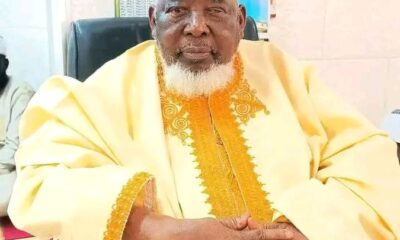
 Death6 months ago
Death6 months agoProminent Nigerian Islamic Scholar, Sheikh Sa’idu Hassan Jingir, Passes Away
-
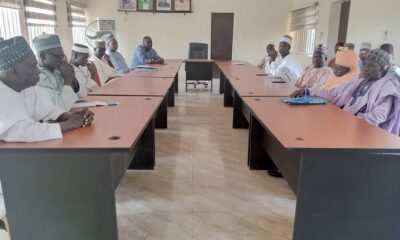
 Water1 year ago
Water1 year agoGombe Government Mobilizes Stakeholders to Combat Illegal Water Connections
-
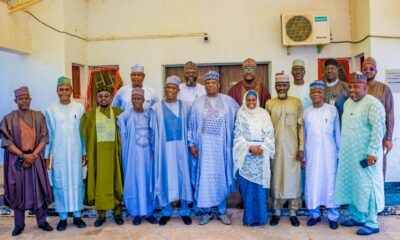
 Politics1 year ago
Politics1 year agoGombe State Inaugurates Human Capital Development Council
-
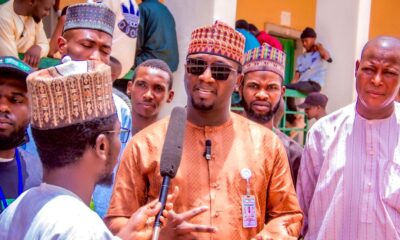
 Politics1 year ago
Politics1 year agoGombe State Launches Presidential Palliative Program (PPP) to Aid Small Businesses
